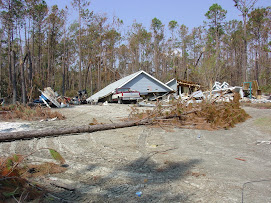Yesterday the trial resumed after the holiday break with Rimkus and USAA employees taking the witness stand. From the looks of the Sun Herald story, yesterday was not very eventful as employees from Rimkus and USAA took the stand to deny the engineering reports were changed simply to save USAA money. Given what we have found regarding the McKinsey consulting recommendations regarding claims handling and its apparent widespread use across the insurance industry as the new claims adjusting bible I have a hard time believing those statements. This would never come out in Court but I'd love to see if just one of these altered engineering reports resulted in a favorable change for the claimant/insured. Forgive the sarcasm but I suspect if such were the case pink pigs really do fly.....
sop
USAA employees testify in case
By ANITA LEE calee@sunherald.com
GULFPORT --Employees testified that USAA Casualty Insurance Co. did not conspire with engineering firm Rimkus Consulting Group Inc. to deny coverage to a couple after Hurricane Katrina.
"Absolutely not," said Rimkus manager Paul Colman, whose denial was echoed by two USAA claims managers testifying in the second week of the U.S. District Court trial.
The three were called to the stand Tuesday by the plaintiffs' attorneys, who are trying to prove USAA pressured Rimkus to change reports that would minimize what the company owed for wind damage.
USAA paid David W. and Marilyn M. Aiken $178,205 for wind damage on a policy that exceeded $680,000 in coverage for their Pass Christian vacation home. The Metairie couple is seeking full coverage, plus punitive damages based on the allegation their claim was denied in bad faith.
USAA employee William McNamara, who supervises adjusters and coordinated work by engineering firms after Katrina, testified Tuesday afternoon. He said Rimkus provided reports for USAA on 200 properties. McNamara also verified he called Rimkus to request its engineering report on the damage be corrected and include more detail.
McNamara said he was not attempting to change the engineering company's opinion about the cause of damage. Instead, he said, USAA needed the wind damage detailed in order to estimate what the Aikens were owed.
Rimkus had closed the file in December, after sending USAA a report that said, in part: "It cannot be visually determined from the remaining physical evidence the percentage of damage resulting from surge forces and the percentage of damage resulting from wind forces." Federal flood insurance covered the Aiken's damage from storm surge, paying them policy limits of $250,000 - less than half the home's value.
A day after McNamara contacted Rimkus in March 2006, the engineering firm sent USAA a "supplemental report" that listed construction components most likely damaged by wind, including gutters, the roof, siding and trim. The supplemental findings also said a storm surge of 20 feet above ground, excluding waves, destroyed building super- structures.
Wednesday, January 23, 2008
AIken v USAA Continues: More Employees Take the Stand
Posted by
Sop811
at
7:06 AM
![]()
![]()
Labels: Bad Faith, Insurance Law, Sop, USAA
Subscribe to:
Post Comments (Atom)

No comments:
Post a Comment